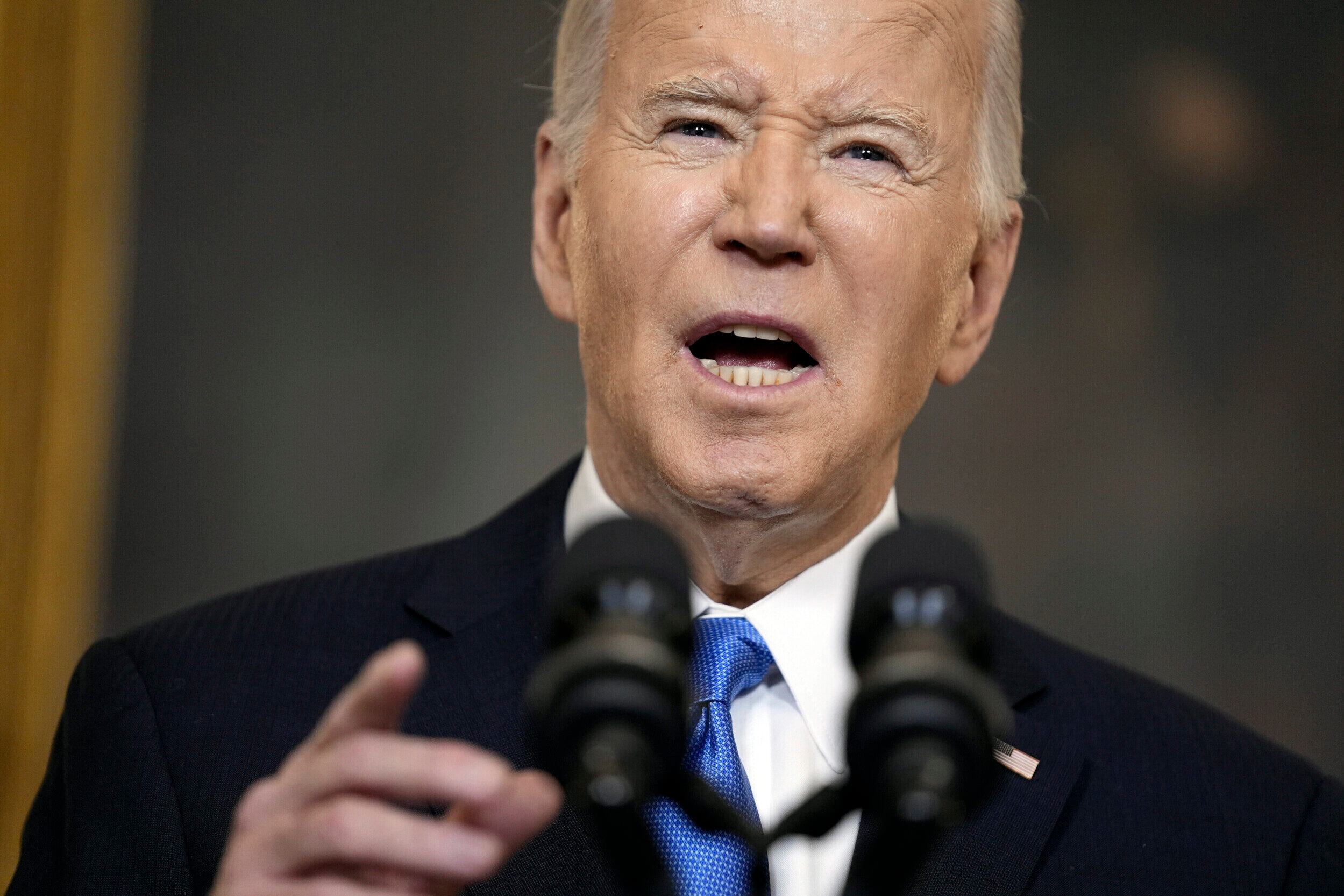Imagine for a moment that the Democratic Party held a majority in Congress and sent a narrowly passed law called the “Misinformation Act” to President Biden’s desk for his signature. The law makes it illegal to make false or malicious statements about the federal government, highlighting topics such as the integrity of the 2020 presidential election and the government’s handling of COVID-19 as especially suspect. Mainstream media herald this measure as the key to finally restoring “politics of civility” in America.
Such blatant freedom of speech infringement brings an outcry, but the Biden administration and its talking heads educate the public on the new law’s deep roots in the Founding generation, citing President John Adams and the Federalist Party’s Sedition Act of 1798. Birthed during an undeclared naval war with France, Adams and the Federalists believed the Sedition Act was a necessary national security measure given the Democratic-Republican Party’s support of Revolutionary France and its fierce opposition to the Adams administration. MAGA Republicans, Russian hackers, and vaccine skeptics, the Biden administration asserts, present a national security concern leading up to the 2024 election that is a far greater threat than the one faced in 1798.
The above is purely hypothetical but could be much less imaginative should Biden and his party gain control this November.
Nevertheless, at present, the Biden administration hasn’t allowed a trivial impediment, such as a law, to prevent them from shaping the public discourse. Proof of this is pending in federal court, where the plaintiffs in Murthy v. Missouri and Changizi v. Department of Health and Human Services allege that the Biden administration violated the First Amendment by pressuring social media companies to censor conservative speech and criticisms of the Biden administration and its COVID-19 policy.
In Murthy, the plaintiffs, led by the states of Missouri and Louisiana, saw initial success by obtaining a preliminary injunction issued by U.S. District Court Judge Terry Doughty in the Western District of Louisiana. However, the Fifth Circuit Court of Appeals went on to limit the injunction, and the Supreme Court stayed the injunction entirely while reviewing the case on writ on certiorari. “Government censorship of private speech is antithetical to our democratic form of government, and therefore today’s decision is highly disturbing,” Justice Samuel Alito wrote in dissent. Oral argument in Murthy was heard in March, so the Court’s final decision will be released in the coming months.
Whereas the plaintiffs in Murthy were allowed to conduct discovery and subsequently found significant evidence of direct communications between social media companies and the Biden administration, the lower courts in Changizi dismissed the plaintiffs’ lawsuit at the pleading stage for a lack of standing. This is despite very similar allegations to the individual plaintiffs in Murthy, the evidence subsequently uncovered via discovery in Murthy which corroborated the allegations, and the Biden administration’s own statements plausibly indicating collusion between the government and social media companies.
The Changizi plaintiffs alleged Biden’s Press Secretary Jen Psaki made one such statement in mid-July 2021 when she said, “We’ve increased disinformation research and tracking within the Surgeon General’s office. We’re flagging problematic posts for Facebook” and “[t]here are proposed changes that we have made to social media platforms.”
Far from speculative, such statements indicate it is entirely possible that the Biden administration was violating the First Amendment behind closed doors. If the White House will publicly state that it is flagging specific speech for social media companies to censor, then it is well within the realm of plausibility that they are taking more severe measures in private.
The plaintiffs in Changizi recently filed their petition for a writ of certiorari with the Supreme Court, and there is a good chance it will pique the Court’s interest given how similar the case is to Murthy. The Foundation for Moral Law filed an amicus curiae brief in support of the petitioners wherein we highlighted the history of the Sedition Act and its lasting importance to the First Amendment.
The Sedition Act was fiercely opposed in its time and is often cited as a primary factor in Thomas Jefferson’s victory over Adams in the 1800 presidential election.
But what if Federalists hadn’t controlled Congress in 1798 to pass the law in the first place? Instead, what if the Adams administration began engaging in direct communications with independent printers, threatening repercussions for allowing Democratic-Republicans to publish ideas critical of the Federalists? What if they even flagged specific topics that they want prohibited from print, thus barring Democratic-Republicans from printing services? Furthermore, when confronted by Jefferson, what if Adams asserted that his administration has done nothing unlawful because it was the printmakers who had ultimately censored the people, not his government?
Had this hypothetical been a reality, it is probable that the public response would have been even more severe than it was against the Sedition Act itself. The Founding generation would have viewed such presidential attempts to restrict speech as actions of someone who thought he was a king. Yet over 200 years later, the Biden administration has restricted speech in this exact manner that the First Amendment absolutely bars.
Talmadge Butts is Lead Staff Attorney for the Foundation for Moral Law (www.morallaw.org). Those with constitutional concerns may call the Foundation at (334) 262-1245 or email talmadge@morallaw.org.
The views and opinions expressed here are those of the author and do not necessarily reflect the policy or position of 1819 News. To comment, please send an email with your name and contact information to Commentary@1819news.com.
Don’t miss out! Subscribe to our newsletter and get our top stories every weekday morning.










